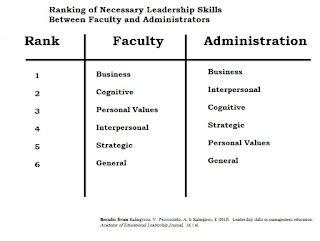New firms are often more in alignment with market needs. These hot firms grow quickly and become market leaders themselves knocking the previous generation of firms from the top spots. The destructive development of new products requires finding new ways of meeting goals. Existing firms must continually reinvest in their operations by conducting research and implement their findings.
Operational improvements can happen anywhere and regularly lead to improvements in firm profitability. For example, audit based research into policy deployment, standardized work, housekeeping, changeovers, maintenance, cultural awareness, and materials at a lean manufacturing company led to significant improvements in firm performance (Taggart & Kienhofer, 2013). The process of measuring and improving operational performance was beneficial for the organization beyond the research investment costs.
The key point is that it isn't just the core functions that have room for improvement as the entire organization is also open to innovative development. Core operations may have some of the highest ROI results but still develop with the help of many support functions. We can see this connection when improvements in the speed of inventory storage and recall leads to more responsive manufacturing lines.
To find a solution requires digging into problems with sufficient depth in order to understand what factors are impacting operational output. There will be opinions upon opinions but most of these are useless unless they are supported by some type of evidence. It is important to understand these opinions are still a starting place for exploratory research and problem formation because collectively they can offer important insights into the internal mechanics of an organization.
Operational research follows many of the same rules as scientific research. Even though there is not the same level of rigorous scrutiny a poor research methodology still leads to a poor result. When making suggestions that can impact millions of dollars it is important to ensure that investigations and findings are relevant, reliable, and valid.
A simple model of how to conduct investigative research:
Operational research follows many of the same rules as scientific research. Even though there is not the same level of rigorous scrutiny a poor research methodology still leads to a poor result. When making suggestions that can impact millions of dollars it is important to ensure that investigations and findings are relevant, reliable, and valid.
A simple model of how to conduct investigative research:
Formulate the Problem: Understand what you are trying to research and formulate a simple statement of the problem. For example, you may develop a statement such as "Reduce waste costs by 25%".
Research the Problem: Researching a problem requires talking to people close to the source, finding places to test, and running statistical analysis.
Construct a Model: Use the data and information you have collected to develop a model determining the cause and effect of problems.
Propose a Solution: Propose a solution based upon the model. A proper and concise definition of the solution is an absolute necessity.
Implement the Solution: Implement the solution. Sometimes it is necessary to implement change in stages checking to make sure each step can be reversed.
Create Feedback Loop: The only real way to know if implementation has been successful is to remeasure to ensure improvement is sustained.
Taggart, P. & Kienhofer, F. (2013). The effectiveness of
lean manufacturing audits in measuring operational performance improvements. South African Journal of Industrial
Engineering, 24 (2).
